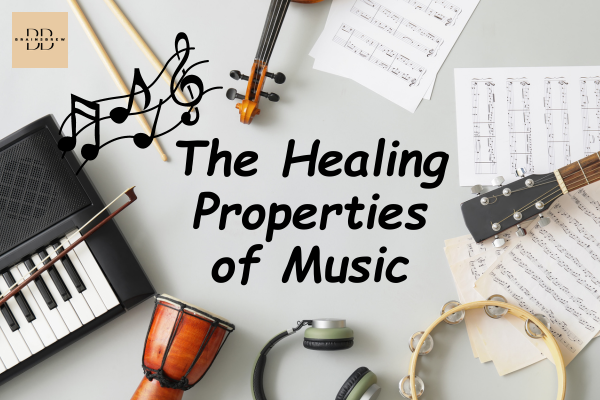Did you know a study has proven that playing a musical instrument improves cognitive health? Another study gave results that listening to music can reduce pain. One concluded that group music and dancing improved the well-being of people with Parkinson’s Disease! These are just some of the examples that show that music can not only be an entertainment element but also an activity to improve your health.
The connection between music and health goes a long way. A study found that Pythagoras first prescribed music to alleviate emotional and physical symptoms. And even now, it is a powerful factor in various areas of life. So, let’s explore how music and health go together:
Health Benefits of Music:
1. Reduces Stress
Listening to music can be quite beneficial if you are feeling stressed or restless. It can uplift your mood in different ways. Generally, calming and natural sounds are used to reduce stress and rapid heart rate. But even listening to your favorite songs can distract you from the stressful things you are worrying about.
It can even help with mindfulness activities like yoga, meditation, and breathing exercises to uplift you. Stress is among the most popular mental health disorders in the world, so it’s amazing to know that something as light and fun as music can help conquer a depressing condition like that.
2. Helps in Sleeping
Yes, you read it right. Music can help you sleep! Thousands of videos and music for sleep and healing are produced each year on the internet, and they have been proven to be quite helpful in drifting us to sleep.
Many people find the calming music and the low mumbling in the background relatively peaceful, which makes us feel calm. So, whether it be slow music, the sounds of crashing waves, or murmurings from nature, you have to find the music that best suits your personality and preference, and playing that music in the background is likely to take you off to sleep.
3. Releases Endorphins
Endorphins are the chemical balances or hormones responsible for making humans, well, basically, happy. Music and health go together once again to release endorphins. Aside from this feature, music also lowers cortisol, the stress hormone.
4. Helps with Blood Pressure
If you have high blood pressure, music can be a nice element to combat the health condition. Calming tones, gentle melodies, nature sounds, and slow music are among the top healing music lists that make us feel relaxed. The restful state will, in turn, help lower the blood pressure.
5. Music Healing for Anxiety
If you search the internet, you will find millions of healing music for anxiety and stress in the form of songs and music videos. The reason why these are so popular is that listening to calming and uplifting music can help you from feeling anxious about any particular thing.
Music activates cortisol, our stress hormone, which can make us feel relaxed and decrease anxiety symptoms, if not prevent them. Overall, it can be good for our well-being!
6. Improves Concentration
Employees and students of all classes and ages can benefit from music’s positive effect. Its ability to help improve concentration makes it an amazing tool for any situation. Of course, loud music can be distracting, but calming and positive melodies are a nice tool for increasing focus!
Music can help to remember things and improve the brain’s cognitive function. Thus, music helps with learning in a way.
8. Releases Dopamine
The music can enhance your mood according to the genre you prefer. So, whether you are dancing, playing, exercising, or doing any other similar activity, music alongside it will make you feel happy by releasing dopamine and improving your performance!
Kathleen M. Howland, a music therapist, says:-
“We can use music clinically to help motivate people to do their best physically.”
Frequently Asked Questions
Q. Is music good for the brain?
According to many studies, music is good for the brain and its functions. From increasing focus to releasing dopamine, enhancing memories to making us concentrate, and helping with learning, music is a powerful element that can benefit you in various domains of life.
Michael Rich, MD, MPH, quotes:-
“I don’t think we should underestimate the power of music because music touches the limbic system or the emotional system of our brain, which, though slower than other parts, can overwhelm all of the other parts.”
Q. What are the benefits of listening to music for students?
Many students have a knack for listening to music while they are studying. Fortunately, there’s nothing wrong with that! Research has shown that music helps with learning! To name a few, music helps with cognitive functions of the brain, such as enhancing focus and students’ memory power. It is also found to be nice for concentrating while they study. It can alert the students and relieve them from the stress of their studies.
Q. What are the effects of music on human behavior?
Among the many effects of music healing, the person’s behavior can also be enhanced when they listen to their preferred or calming melodies. Different music worlds in different ways. For example, when you listen to a powerful song, there can be a shift in behavior, likely to make you feel energetic. Or, listening to a nostalgic song can increase dopamine in our body, making our behavior happier and calmer.
Conclusion
This concludes the list of the power of music on health that has been seen until now. It proves that not only is music an entertaining activity, but it is also good for our health. Who knows how many benefits of music we’ll encounter in the future?

